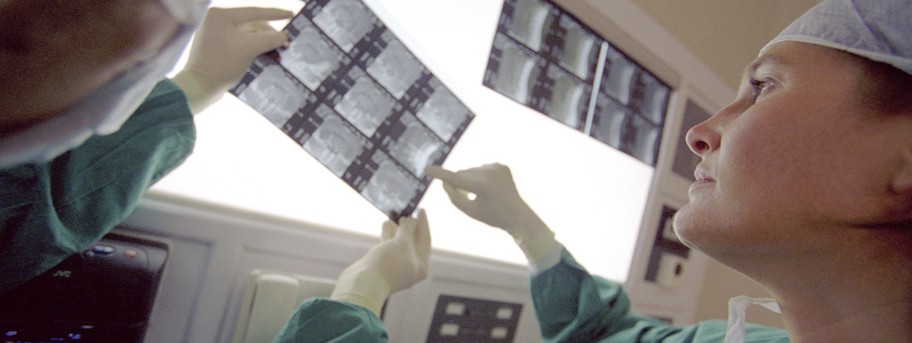The University of Nottingham
 Exchange online
Exchange online
Research Exchange
Engineering the ‘smart healthcare’ of the future

Pioneering scientists at the University have won a £1.2 million grant for research into the engineering of nanomaterials that could transform the global healthcare industry.
From medical implants to new drug treatments, nanotechnology is the big new hope for the future of health and human wellbeing but how to manufacture and scale up the production of nanoparticles and nanocomposites from an engineering point of view is a major challenge.
Nanotechnology is already being used in the healthcare sector. For example, hospitals use fabrics with silver nanoparticle coatings; this gives them an anti-bacterial and anti-fungal effect. This new research at the University will develop a way to produce medical polymer-based (plastic) nanocomposites for use as surgical implants that eventually break down, being absorbed safely by the body when they have done their job. In this way they could replace metal implants in bone surgery for example.
Pro Vice Chancellor Chris Rudd is on a mission to develop a route to the safe and efficient production of the nanomaterials, which will be used as vehicles for drug delivery and bone tissue regeneration. He said:
“This new grant represents a major opportunity for The University of Nottingham to lead the way in the global industrial development of nanoparticles and composites. It is the only way the cutting-edge nano-engineering carried out here can be translated to have real impact on the world outside the laboratory. Our unique collaboration with industry will produce the smart healthcare materials of the future and at the same time provide huge scope for economic benefits through the development of new material types, technology lines and new companies.”
The project has been awarded this significant funding by the Engineering and Physical Sciences Research Council and will run for four years from October 2012. By the end, the researchers expect to be able to manufacture demonstration models so the research can progress to the clinical trials stage. Specific challenges in nanotechnology that the new research will tackle include:
- How to produce nanoparticles of consistent size and shape. Award-winning University spin-out company Promethean Particles will use its unique method of manufacturing nanoparticles suspended in water to achieve this, including new nanoparticles of a material similar to the mineral component of bone for use in orthopaedics.
- How to disperse the nanoparticles effectively, throughout the nanocomposite.
- How to control the degradation of the nanocomposite. Researchers will work with industry partners who are experts in the manufacture of degradable polymers and composites for medical use.
- How to scale up manufacture to commercially-viable industry levels. Few laboratory nanocomposites have been translated into real products because of difficulties in ensuring consistency of quality in mass production. The close collaboration with several industry partners will ensure scaleability will be achievable from the start of the design process.
Joining Professor Chris Rudd on the project are Davide de Focatiis (polymer processing), David Grant (bioengineering), Derek Irvine (polymer synthesis), Ed Lester (nanoparticle synthesis) and Andy Parsons (composites).
The global industry partners contributing equipment and consultancy to the research project are:
- Promethean Particles, Biocity, Nottingham UK: Promethean Particles possess unique hydrothermal synthesis facilities for producing large quantities of shaped nanoparticles.
- TESco Associates, Tyngsborogh, MA, US: TESco Associates are producers of polymeric degradable medical implants, with over 30 years of experience in materials selection and manufacturing of degradable polymers and composites for medical applications using injection moulding and extrusion.
- Lucite International Speciality Polymers: Lucite International is the world leader in the manufacture of methyl methacrylate (MMA) and a global leader in the design, supply and manufacturer of acrylic-based products.
- Evonik Roehm GmbH: Evonik manufacture health-care products, including degradable polymers for both implants and controlled release applications.
- Thermo Fisher Scientific: ThermoFisher are manufacturers of high-end analytical instruments, polymer processing equipment, software and laboratory supplies.
Leave a Reply
Other News

Top prize for quantum physicist
A University of Nottingham physicist has won a prestigious medal from the Institute of Physics for […]

Zero carbon HOUSE designed and built by students comes home
Design and construct a low cost, zero carbon, family starter home, transport it to Spain, build […]